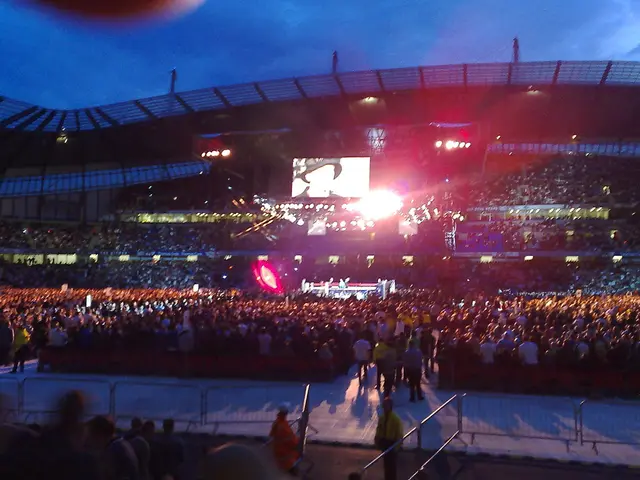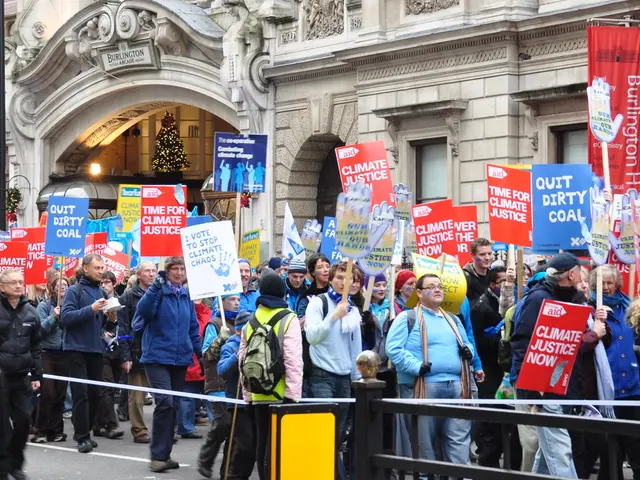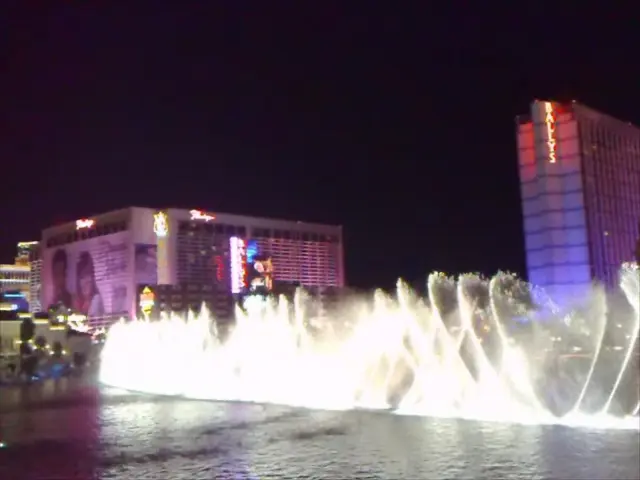Futuristic Dystopias Captivate Readers: Standout Sci-Fi Noir Novels of the Year (Thus Far)
The Future Painted Dark: Tech, Debt, and the Denizens of a Dystopian Tomorrow
By Molly Odintz
From the depths of an underwater metropolis to the furthest reaches of space, the planet in 2142 is a far cry from its former glory. Once-bustling cities are now submerged under the ocean, while the wealthy inhabit high-tech "seascrapers" and the poor dwell in floating slums. This is the bleak landscape painted by Chris McKinney in his novel "Midnight, Water City."
Set in the Hawaiian archipelago, McKinney's Hawaiian noir follows a former bodyguard who seeks to solve the murder of a longtime lover and colleague, a scientist who famously thwarted an asteroid headed for Earth. As he navigates the treacherous underworld of the flooded metropolis, he must confront the consequences of advanced technology and AI.
Meanwhile, in Lincoln Michel's "The Body Scout," baseball teams are sponsored by genetic engineering companies, and players are pumped full of chemicals to enhance their performance. When the former Yankees stars' brother is murdered in a bloody attack at the diamond, the team's CEO offers to clear his medical debt if he solves the crime, setting him on a complex and dangerous path.
Tade Thompson's "Far From the Light of Heaven" is set in a future where a colonization ship docks in the Lagos sector, but some of the sleepers on board never awaken. An investigator is called in to determine the cause, leading to a haunting examination of mortality, identity, and the human mind.
In a parallel version of our own world, Terry Miles' "Rabbits" revolves around a mysterious video game that has captivated millions since its inception in 1959 despite alarms around its player deaths and manipulation of reality. When the 11th iteration of the game nears, a player discovers that past winners are being eliminated, forcing them to confront the truth about the game's power and effects.
S.B. Divya's "Machinehood" is set in 2095, where gig-workers compete against AI for scarce jobs, requiring daily pills to keep their minds sharp and fend off disease. Tensions rise when a secretive group known as the "Machinehood" begins attacking pill suppliers and advocating for machine and human hybrids.
Meanwhile, in Dan Frey's "The Future Is Yours," two friends build a computer that can predict the future, only to find that they have unwittingly created a looming apocalypse. As they race to uncover the truth, they must grapple with the curse and blessing of foresight.
Finally, Alison Stine's "Trashlands" takes readers to Scrappalachia, where plastic is the currency, and the survivors of climate change barely eke out a living. Coral, her partner Trillium, and her adoptive father Dr. Fall live in a junkyard community, where memories of the past and the potent symbol of the "Trashlands" strip club bring in customers from miles away. Scrappalachia is a harrowing vision of the future, but the spirit of resilience and humanity shines through in the faces of its inhabitants.
While these novels each offer a unique and compelling glimpse into the future, they share a common thread: the powerful impact of technology on society and the dystopian consequences that can arise when that power is unchecked. As we venture further into the realm of AI and advanced technology, these stories serve as a cautionary tale—a reminder that the future is shaped by the choices we make today.
In Molly Odintz's "The Future Painted Dark," advanced technology and AI are major elements of the society in 2142, and they play a crucial role in the protagonist's investigation of a murder. Similarly, in Dan Frey's "The Future Is Yours," the development of a computer that can predict the future has profound implications for the characters, showcasing the potential dangers of unchecked technological advancement.








